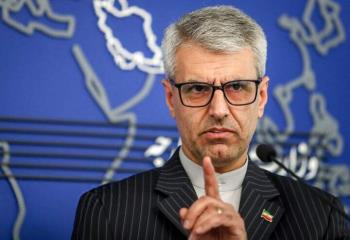Alwaght- In past few days and weeks an array of events took place in the regional diplomacy that need to be analyzed under a single, unified scenario.
These developments have happened in a serial fashion following the failed coup in Turkey as Turkey's diplomatic relations with its Western allies recently saw tense times.
The first sign of change in Turkey's policy appeared after Ankara normalized its diplomatic ties with Moscow and the Turkish President Recep Tayyip Erdogan visited Russia and met with the Russian President Vladimir Putin in St. Petersburg.
It was after these events that the regional affairs experts and analysts have accurately talked about possible new shift in the regional policies of the Turkish government following the failed power grab bid in the country. At the same time, according to the views of the analysts the change of Ankara’s stances on the Syrian crisis is the most significant part of the shift in foreign and regional policies of Turkey.
Another important event that appears not to be unlinked to the fresh developments of West Asia region is that last week the Russian Deputy Foreign Minister and special envoy of Russian President Vladimir Putin on Middle East Mikhail Bogdanov visited Iran after words spread that Russia deployed its long-range strategic bombers to Hamadan Nojeh air base, Iran for easier anti-terror airstrikes in Syria.
Meanwhile, Russia last week several times launched air raids at positions of the terrorist groups in Syria from Iran's western airbase.
On the other side, in time with bombarding sites of ISIS and other terrorist groups in Syria by the Russian bombers from Hamadan Nojeh airbase, the Syrian government’s fighter jets in an unprecedented move have conducted airstrikes at positions of the Kurdish People's Protection Units (YPG) in Al-Hasakah in Syria’s northeast for two days in a row.
The bombing of locations of the Kurdish groups, which are considered by the Turkish government as enemies of Turkey and Ankara said that it saw no difference between PKK and them, is another significant development taking place over the course of past few weeks that is not irrelevant to recent chain of events in the region.
And now a new development: the Turkish Foreign Minister Mevlut Cavusoglu paid a surprise visit to Tehran and held a 5-hour meeting with the Iranian Foreign Minister Javad Zarif. This is another groundbreaking development that appears to be analyzable within the puzzle of the new regional developments.
Following the failed coup attempt in Turkey, many of the analysts foresaw new serious shifts in regional and foreign policy of Ankara. Many of them saw it as not unlikely that Russia, Turkey, and Iran form a new alliance to address the crisis in Syria. Now it seems that this prediction is more than ever likely due to the fresh events that support its birth.
As Ankara is moving away from its Western allies, it is getting closer and closer to Russia and Iran. The past few days' developments indicated that the signs of a likely cooperation of the three countries on Syria are appearing as the time goes by.
The tripartite alliance and partnership, however, does not mean that the government of the Syrian President Bashar al-Assad would be strengthened as the Russian officials repeatedly stated that the major problem of Syria was not the position of President Bashar al-Assad, rather, the key issue was fighting the terror groups whose presence in the country and support of them by some regional and international parties in past few years have been the major factors for insecurity and domestic violence in Syria.
The recent meetings between Moscow, Ankara, and Tehran officials, as well as the unprecedented developments in past few days in relation to the Syrian conflict and diplomacy show that in upcoming days and weeks we should expect new and exceptional events in connection with the Syrian crisis. It seems that they would focus on putting an end to the Syrian war and the current tragic humanitarian crisis in the country.
As some media put it, perhaps circulation of pictures of shocked and bloodied Syrian five-year-old boy Omran in Aleppo in past few days can push closer the stances of regional and international powers to work out an end to the present humanitarian tragedy in Syria.



























